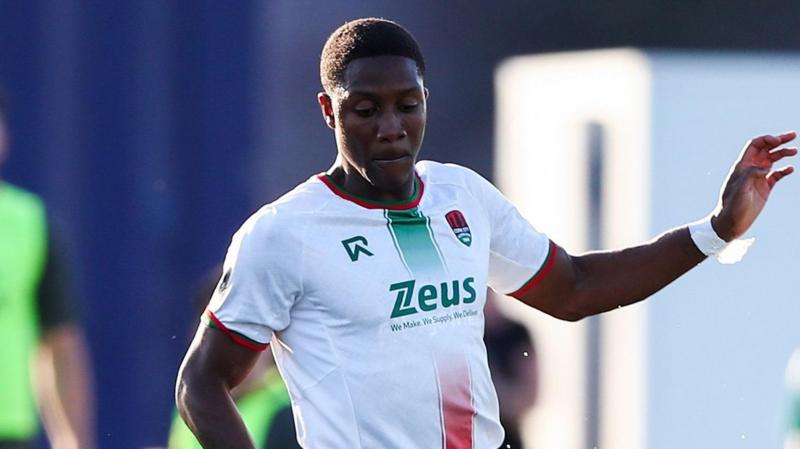St Mirren Manager Clueless on Dijksteel's Missing Cork Match!




In a surprising twist that has fueled plenty of speculation and raised eyebrows in football circles, St Mirren manager Stephen Robinson expressed his unawareness regarding the absence of Malik Dijksteel from Cork City's recent match against Sligo Rovers. Dijksteel, who has already signed a pre-contract agreement with the Scottish club, was notably missing from the Friday night fixture, sparking a wave of questions and theories about his sudden omission.
Robinson, addressing the media, was quick to clarify that he was as in the dark as everyone else about why Dijksteel did not participate in the game. This statement has left fans and analysts alike pondering the possible reasons behind Cork City’s decision not to field a player who is set to depart their ranks at the end of the season.
Malik Dijksteel, a promising young talent, has been on the radar of several clubs thanks to his impressive performances in the Irish league. His skills on the field, particularly his agility and strategic play, have not gone unnoticed, making him a valuable asset for any team he joins. The announcement of his pre-contract with St Mirren earlier this season was received with much enthusiasm by the club’s supporters, who are eager to see new talents bolster their squad.
However, the decision by Cork City to bench Dijksteel could stem from various strategic reasons. Often, when a player signs a pre-contract with another club, the current club might opt to bench them to avoid injuries or to give other players who are staying on more game time. This not only helps in building a team for the future but also in maintaining a strong unit cohesion without the distraction of pending departures.
From a tactical perspective, coaches sometimes make these difficult decisions to protect the player and the integrity of the club. Although not fielding a key player like Dijksteel might seem detrimental in the short run, Cork City might be looking at the bigger picture, focusing on developing players who will continue with them beyond the current season.
Adding to the complexity, there’s also the psychological impact of such transitions on the team dynamics. Players, who know they will be parting ways, might experience different levels of engagement, which can affect overall team performance. Cork City’s coaching staff might be trying to mitigate these potential issues by adjusting their lineup accordingly, ensuring that the team remains focused and competitive in the league.
Meanwhile, for St Mirren and Stephen Robinson, the focus is undoubtedly on the future. The Scottish club is gearing up for the next season, and having a player like Dijksteel on board is a clear indication of their ambitions. Robinson’s interest now lies in how best to integrate Dijksteel with the rest of the squad, fostering an environment where he can thrive and contribute to the team's success upon his arrival.
As this situation unfolds, it serves as a reminder of the complexities involved in football transfers and player management. Decisions about player participation are not always straightforward and can be influenced by a variety of factors, ranging from player safety and team strategy to psychological and future team planning considerations.
The coming weeks will be crucial for Malik Dijksteel as he prepares to transition to his new club. How Cork City manages his involvement in their remaining fixtures will be interesting to follow, as it will provide deeper insights into the strategic thinking that goes behind managing players who are on the cusp of transitioning to new challenges. Meanwhile, the St Mirren faithful will be watching closely, hoping that when Dijksteel does make the switch, he will be in the best possible form to start the new chapter of his career in Scotland.